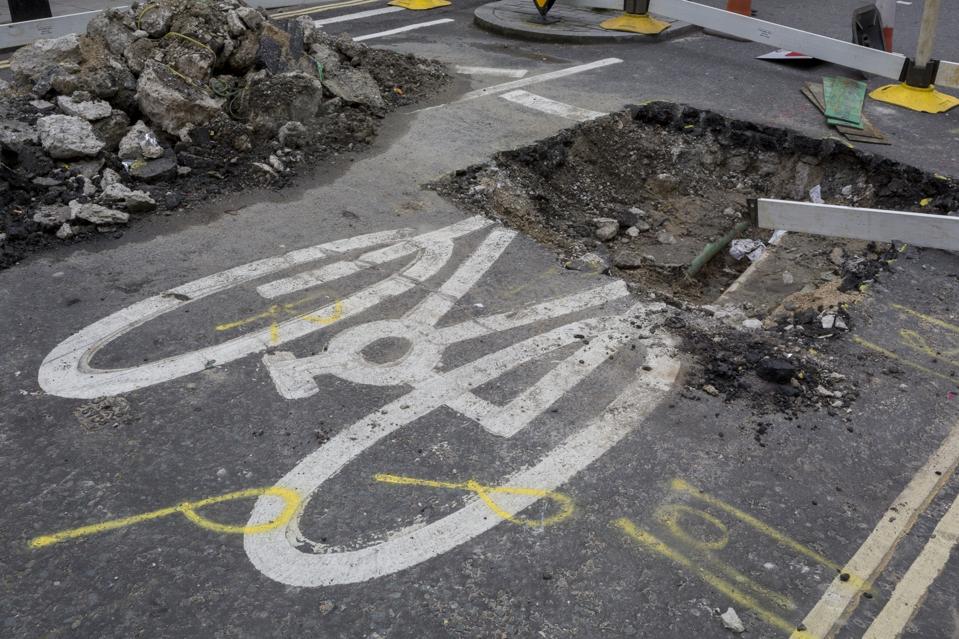Aside from the proliferation of potholes, few other issues lead to fiercer debate in local media than the creation of bike lanes. Even though cycling is a benign form of personal transport, much of this debate is often headlined as “controversial,” with those who call for cycle infrastructure sometimes labeled, wrongly, as “all-powerful.” At the same time, far more dominant car interests fly under the radar. Now, a new British study claims that a “sizeable number of cyclists may unwittingly undermine their own cause.”
In the words of one local politician mentioned in the study, this was because of the “rudeness” of some cycle advocates on social media. This characterization may be a symptom of so-called “motornormativity”—unconscious bias in favor of motoring—but, according to a local politician quoted in the paper, many U.K. councils “find it harder to advocate for more cycle infrastructure, not because people don’t like it, but because people feel that nothing we ever do will make cyclists happy.”
Given the often truncated nature of bike lanes—which can start and stop for no physical reason and rarely mesh to form a useable network, unlike the infrastructure provided for motorists—this is perhaps unsurprising.
The study includes interviews with dozens of councilors and local officials who work on local transport projects across the U.K. Study author Dr. Alexander Nurse, a reader in urban planning at the University of Liverpool, found that while bike lane opponents were often hostile and antagonistic, so were some cycle advocates.
Nurse found that slightly less than one-third of interactions with cycle advocates about new projects were seen as negative. One respondent complained: “Cycling campaigners are counterproductive due to their rudeness.”
Strident social media campaigning in favor of bike lanes “can massively undermine [cycling’s] case, particularly with skeptical councilors,” said a respondent to Nurse’s survey of almost 50 councilors and officials.
However, such strident posts on Twitter, Facebook, and other social media sites were considered by councilors to be peripheral, while far more persuasive were emails and face-to-face interactions with constituents.
“While social media is a powerful tool,” said Nurse, “it doesn’t replace traditional methods when it comes to meaningful community engagement.”
The subject of providing infrastructure for cyclists was considered “controversial” by many councilors, reports The Guardian, with debate on social media seen as “toxic.” Those opposed to cycling infrastructure could often be “abusive,” said the research. One councilor described being “doxxed” online, with their address and family details revealed.
Some councillors expressed suspicion of those opposed to bike lanes, describing them as “usually anonymous” and often pushing “misinformation from the Libertarian fringe or organizations that are almost certainly bankrolled by fossil fuel organizations” but councillors also said that some cycle advocates “don’t appreciate challenges in advancing delivery.”
The paper is published in the journal Local Government Studies.

